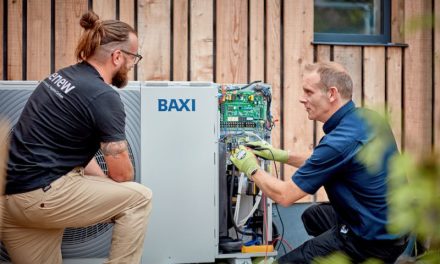 While a broken boiler at any time of the year can be an inconvenience, most homeowners find that their problems tend to start at the beginning of winter. Usually, this is because their boilers have been relatively inactive during the warmer months of the year, and it’s when they are forced to start working all day long that inconvenient and expensive problems arise. In this article, we’ve taken a look at the most common boiler problems. Some of these can be fixed by homeowners, while others will require a professional.
While a broken boiler at any time of the year can be an inconvenience, most homeowners find that their problems tend to start at the beginning of winter. Usually, this is because their boilers have been relatively inactive during the warmer months of the year, and it’s when they are forced to start working all day long that inconvenient and expensive problems arise. In this article, we’ve taken a look at the most common boiler problems. Some of these can be fixed by homeowners, while others will require a professional.
It’s leaking and dripping
A boiler that leaks or drips could be caused by any number of things, although the most common are cracks within the main boiler or a problem with the valve or seal. The easiest solution to this problem is to use a boiler sealer. These come in both powder and liquid form and are easy and quick to apply, although it’s important to ensure you are properly protected with a mask, work goggles, and gloves. If the cracks are too large, it may be worth contacting a company like Lindberg Process Equipment who will be able to advise you on the best solution.
It won’t heat water
Sometimes a boiler will have no problem supplying central heating, but it won’t heat the water you need for your bath or shower. The first thing to do in this scenario is to check your thermostat. If this is set too low, it may only be releasing cold water into your system. If this doesn’t work, you should check the clock on your boiler is correct and also check for frozen pipes, both of which could be causing it to malfunction. If none of the above appear to be the problem, it’s best to call a professional tradesman, as your boiler may require replacement parts.
It won’t supply central heating
It’s also possible to have the opposite problem to that described in the previous paragraph. If your boiler will supply hot water but won’t supply central heating, the most likely cause is that the thermostat is too low. Some boilers require the thermostat to be set to at least 21°c in order to kick in. Another thing to do is check that your heating functions are all activated. If all of this seems to be in working order, you’ll again need to contact a tradesman for help.
It’s noisy
No boiler will be completely silent, but if it’s louder than what you’re used to, you may have a problem. If your boiler is making a gurgling sound, this usually means that you have a frozen pipe somewhere in your home. A boiler that makes a whistling sound, on the other hand, is usually letting you know that there’s trapped air somewhere in your system. Bleeding your radiators could help to solve the issue.
There are a number of problems associated with boilers. If in any doubt, it’s always best to contact a professional for assistance.




